In the era of post-genome and big data analysis, with abundant information and communication technology and top-notch medical talents, Taiwan has developed diverse healthcare services. Over the past decade, our team has been working together with a variety of organizations to integrate domestic industrial and academic resources, making Taiwan a major center for exporting medical and healthcare system as well as cultivating talents in Southeast Asia, and establishing Taiwan's position as a leader in medical humanities and bioethics for practice-oriented education.
Under the international cooperation project implemented by the Ministry of Science and Technology (MOST) and the Ministry of Health and Welfare, Taiwan-Cambodia Medicine, Humanities, Science and Technology Innovation Center, led by Professor Duu-Jian Tsai of Pingtung Christian Hospital, aims to build a joint medical service and education demonstration base and to cooperate with hospitals in Southeast Asia (see Figure 1). In early 2018, with the support of MOST, our team combined the resources from major universities and medical centers in Taiwan and the Ministry of Public Health in Thailand to establish the Taiwan-Cambodia Medicine, Humanities, Science and Technology Innovation Center at Rajanukul Institute in Bangkok. In addition, supported by domestic and foreign industry, government, and academia, we built an intelligent technology R&D platform focusing on healthcare services, and transfer the technology to establish Healthy Asia Co., which won the FutureTech Breakthrough Award in FUTEX 2018. With Bangkok as the hub, our center has established four sub-centers in Chiang Mai in Thailand, Nha Trang in Vietnam, Batam and Bintan island in Indonesia, and Phnom Penh in Cambodia, as well as the Asia Pacific Consortium on Bioethics Education in Universitas Gadjah Mada, Indonesia. Therefore, the Taiwan-Cambodia Medicine, Humanities, Science and Technology Innovation Center has become an international platform for exporting Taiwan medical services, healthcare management, and smart technology application.
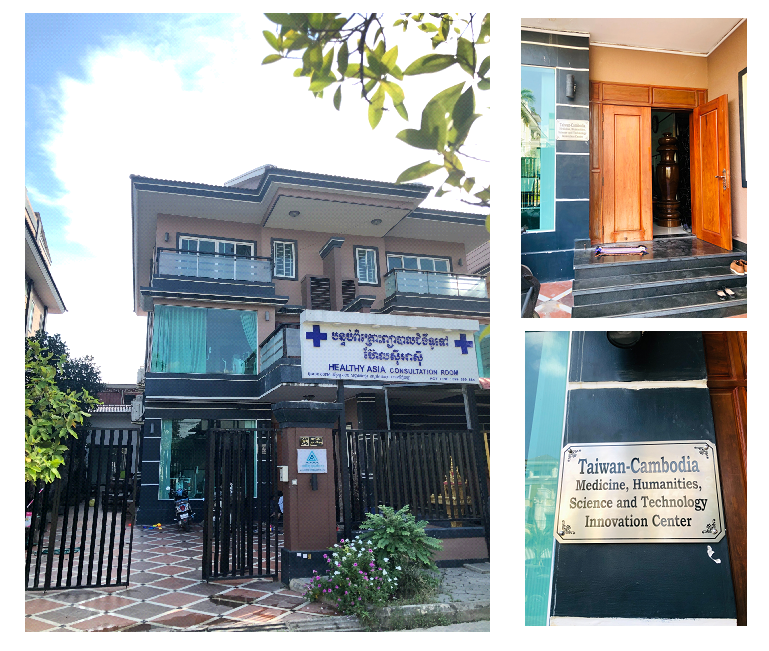
Figure 1: Taiwan-Cambodia Medicine, Humanities, Science and Technology Innovation Center in Academia Formosanica Co., Ltd., Phnom Penh
History of Development and Current Status of Medical Resources in Cambodia
Cambodia, formerly known as Khmer, spans over 181,035 square kilometers in area and borders with Thailand to the northwest, Laos to the northeast, Vietnam to the southeast, and the Gulf of Thailand to the south. Cambodia's capital is Phnom Penh, and the population of Cambodia grows rapidly with 16.87 million people in 2020. According to the United Nations, 77% of the population live in rural areas and 13.5% live below the poverty line. Cambodia has an ancient civilization with a history of more than 2,000 years in the Indochinese Peninsula, and its Angkorian Empire from the 9th to the early 15th century had been a powerful country that created the world-famous Angkorian civilization. After more than 300 years of the Dark Age in Cambodia and 86 years of French colonization, Cambodia became an independent country in 1953. For more than a decade under Sihanouk's leadership, Cambodia was known as the "Paris of the East" and was one of the richest countries in Southeast Asia. However, during the period of the Khmer Rouge from 1975 to 1979, more than one-fifth of the population (around 2 million people) died because of famine, hard labor, disease, and persecution, making it one of the most bloody and violent man-made disasters of the 20th century. After 20 years of civil war, Cambodia was assisted by the United Nations to hold national elections in 1993, and a new constitution was passed, restoring the monarchy and the name of the country, the Kingdom of Cambodia.
The Cambodian government established the Ministry of Health in 1993 and the Cambodian Medical Association in 1994. According to the statistics, infectious diseases such as malaria, dysentery, tuberculosis, measles, dengue fever are the main causes of death, and the number of non-infectious diseases is rising significantly as well, causing 53% of deaths every year. The main medical infrastructure in Cambodia is provided by the Ministry of Health and NGOs. According to a 2015 WHO report, there are about 1,400 public hospitals and 5,500 private hospitals in Cambodia, and most of them are in urban areas, indicating a huge gap between urban and rural areas.
After years of war and chaos, there is a shortage of professional medical personnel. Currently, Cambodia has few training institutions for medical personnel, and the standards for curriculum planning and training programs are nowhere to be found. As a result, the capabilities of medical personnel fall behind compared to other countries in ASEAN, and people are not confident about the quality of healthcare in Cambodia. For common colds and fevers, people usually buy medicines from roadside pharmacies, while the rich choose to go to Thailand, Vietnam, or Singapore for medical treatment. In terms of medical equipment, more than half of the Cambodian market relies on imports. Many people in Cambodia do not trust Cambodian medicines, and those with more money use imported medicines, so Cambodia relies heavily on import medicines. Most of these imports are from neighboring countries such as India and China. In addition, the lack of medical insurance in Cambodia has led to a large amount of national expenditure on medical care. According to 2015 statistics, Cambodia spent 5.98% of its GDP on healthcare, the highest among ASEAN countries. The WHO report in 2015 also pointed out that improving the quality of healthcare is a priority for the Cambodian government.
Opportunities for Taiwan's Participation in the Cambodian Medical Market
The Principal Investigator met Dr. Kim Savuon, a Cambodian psychiatrist and president of the Mental Health Association of Cambodia 10 years ago through MOST's international program. Dr. Kim Savuon has attended the workshops of this program for 10 consecutive years and has led several Cambodian psychiatrists to join the events. In 2017, as the team expanded the themes of the workshop from mental health to smart medical applications, Dr. Kim Savuon, the deputy director of the Department of Hospital Services, introduced us to Dr. Oum Sopheap and Dr. Som Leakhena, the founders and CEO of the Khema International Polyclinic (KIPC), for a visit Taiwan (see Figure 2). The visit led to a Memorandum of Understanding with Pingtung Christian Hospital and Min-Sheng General Hospital, and the bilateral exchanges began in early 2018.
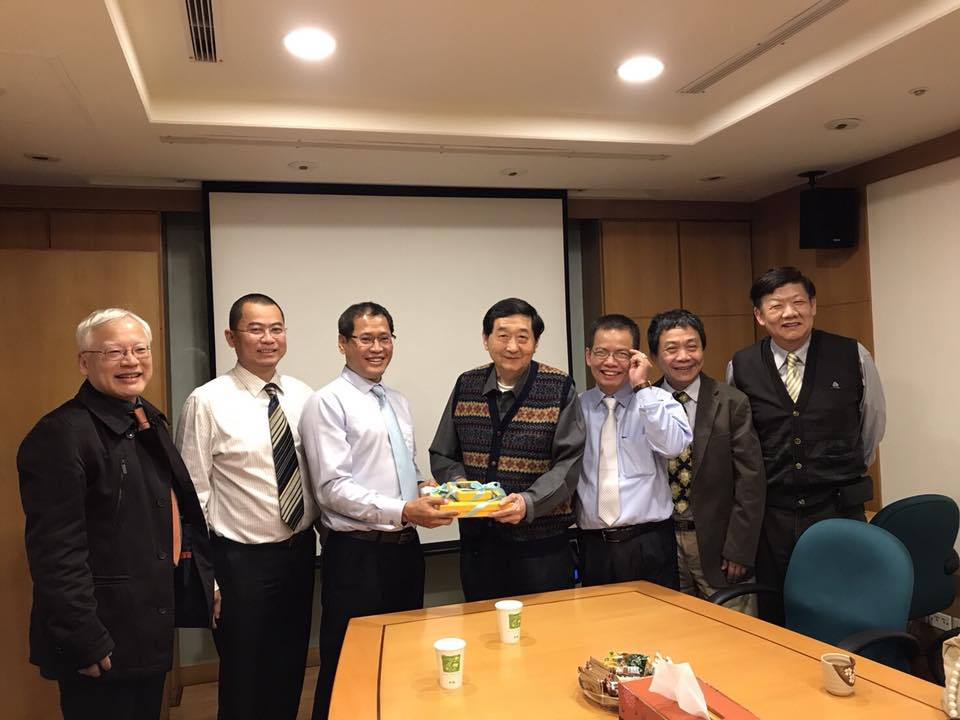
Figure 2: Dr. Oum Sopheap and Dr. Som Leakhena, the founders and CEO of the Khema International Polyclinic (KIPC), came to Taiwan for a visit.
In 2018, the team led Pingtung Christian Hospital and Min-Sheng General Hospital to KIPC to examine the current medical situation, problems, and needs in Cambodia, especially in Phnom Penh. The team noticed that Phnom Penh is a city full of opportunities. Foreign hospitals such as Japanese and Thai hospitals are charged in U.S. dollars ($500 a day for hospitalization, not including the medical expenses), while Cambodia's medical institutions only have costly clinics with new equipment and few doctors. In medical education, with no internationally recognized university, the best medical school in Cambodia has only ten full-time teachers, all of whom are clinicians. The medical knowledge of these doctors is rather limited. However, the international schools provide good bilingual training, which is a great opportunity for developing technological and vocational education as well as college education in the future. It will fulfill the needs of local hospitals and promote professionalization in Cambodia, which is well recognized by local elites. The team evaluated that it is suitable for Cambodia to employ the joint service model established by Pingtung Christian Hospital in Khanh Hoa General Hospital, Vietnam. In addition, in recent years, many ethnic Chinese in Cambodia come to Taiwan for medical treatments, which shows great potential for medical research in Cambodia.
The Establishment of Clinic with Mandarin-speaking Doctors and Academia Formosanica Co., Ltd
Invited by KIPC, our team set up the clinic with Mandarin-speaking doctors at KIPC in May 2018, staffed by Dr. Ssu-Shan Fan from the Department of Cardiovascular Surgery of Pingtung Christian Hospital. In addition, we established an interdisciplinary medical team to perform surgeries and train local doctors in KIPC. With the support of the Healthy Asia Co., we assisted KIPC in setting up the training system and services for various divisions, introduced hemodialysis, cardiovascular surgery, emergency medicine, intensive care unit, and referrals to Taiwan. Together we set up groundbreaking medical services in Cambodia and created industry-academia-government cooperation in Cambodia and Taiwan (see Figure 3).
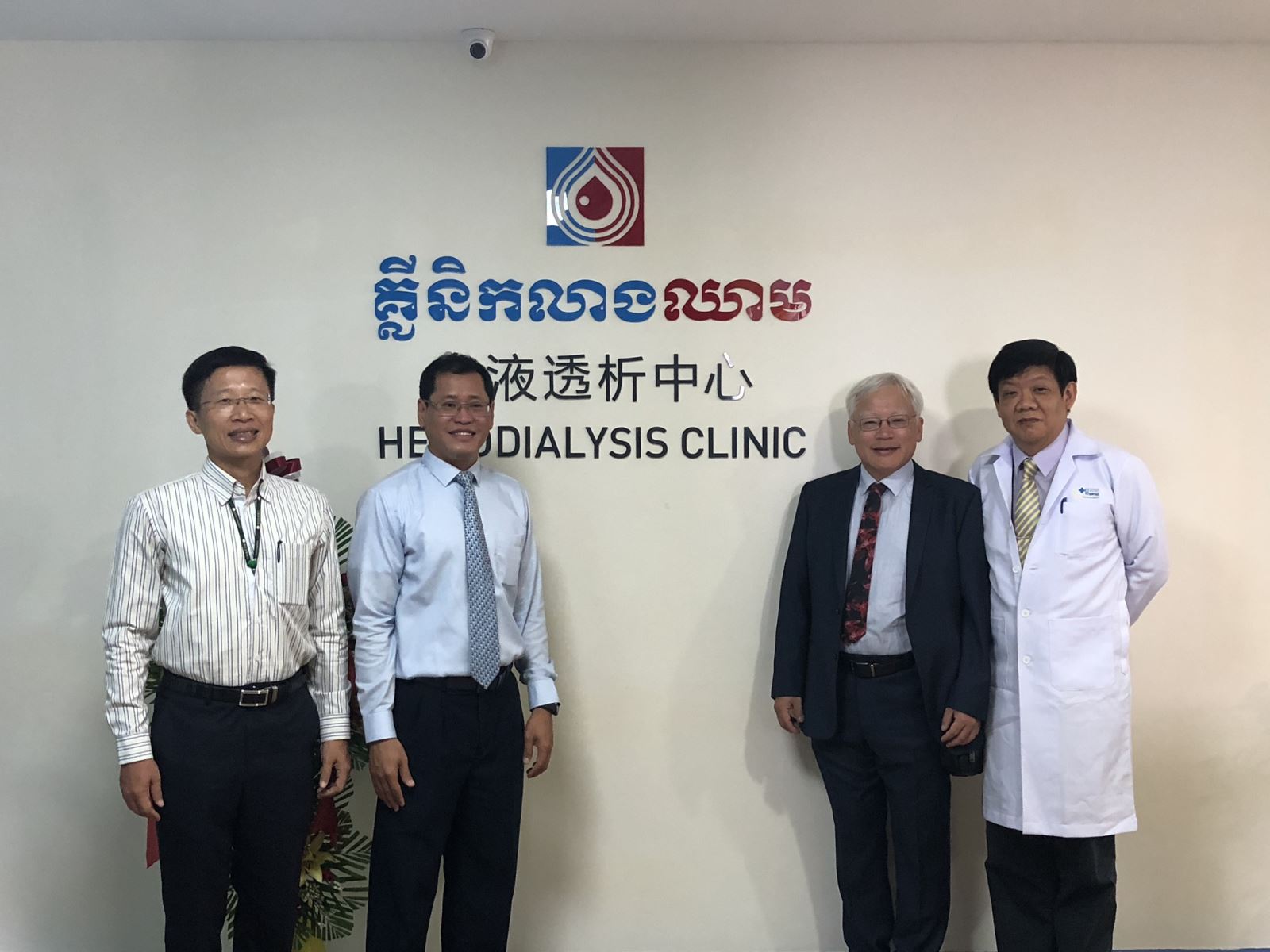
Figure 3: Hemodialysis clinic in Phnom Penh
We also convinced our ASEAN partners, such as Thailand and Vietnam, to support the development of Cambodia and provide training opportunities for them. In 2019, we received local support to establish Academia Formosanica Co., Ltd. in Phnom Penh and the Healthy Asia Clinic, which aims to offer Taiwan's experience and help Cambodia improve its medical standard, including the planning of hospitals, clinics, pharmacies, and schools, as well as the import and export of pharmaceutical products and medical equipment (see Figure 4).
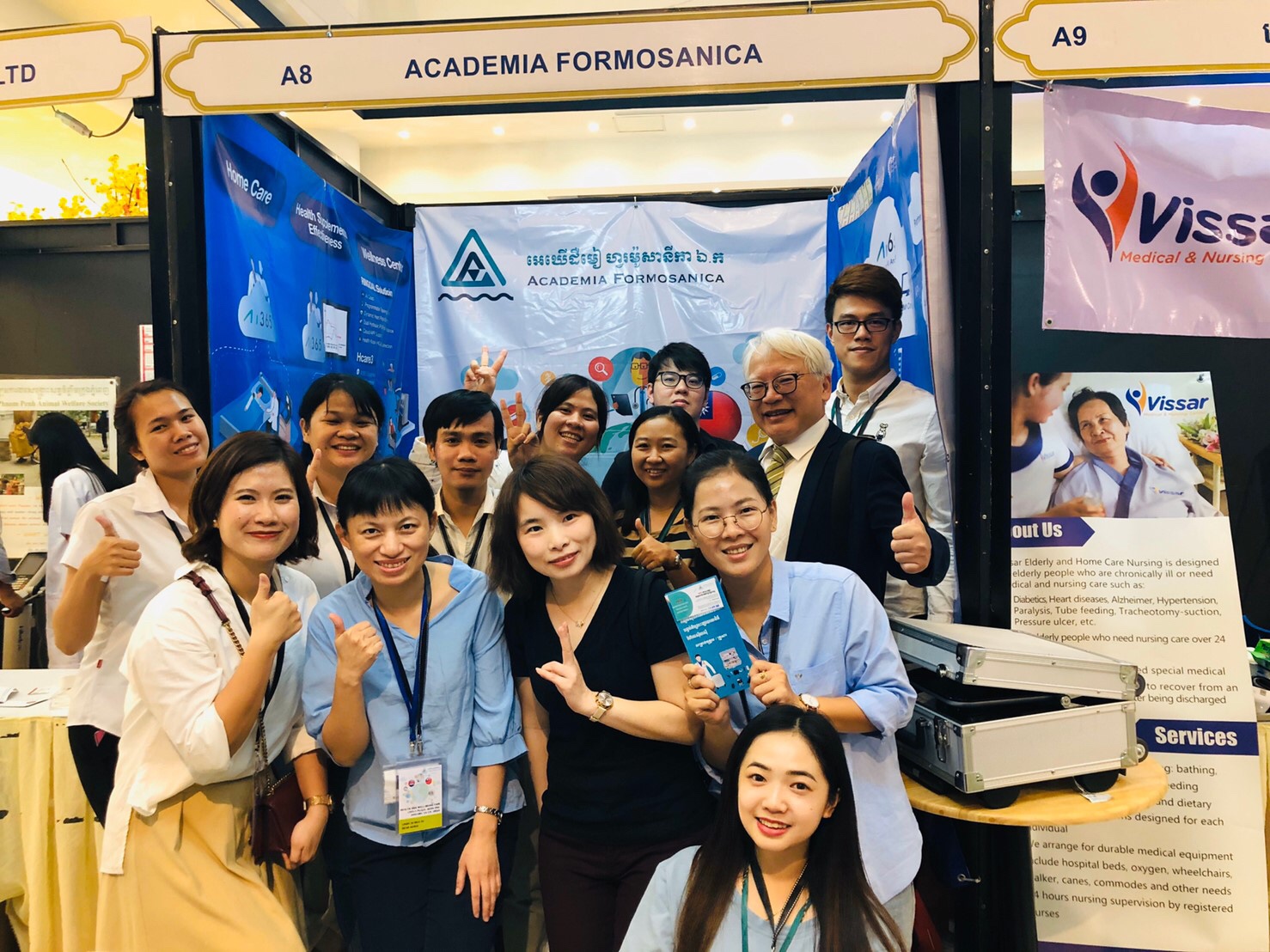
Figure 4: Academia Formosanica team participated in a medical exhibition to promote Taiwan's experience
In early 2020, as the pandemic spread quickly across the world, the medical team led by Dr. Fan decided to stay in Phnom Penh to help fight the pandemic and take care of the Taiwanese in Cambodia. Through telemedicine equipment and cloud-based health monitoring solutions, as well as the medication delivery service, we can reduce interpersonal contact in hospitals, help lift the burden of the healthcare system, and avoid public fear. After exchanging information on pandemic prevention and comparing the experiences of different countries, our team tried to promote Taiwan's contact tracing system based on family members and intimate relationships to help control community spread. Although warm climates can slow down the spread of coronavirus, these countries need to avoid hospital-acquired infections and cluster infections with rapid information exchange and action. Our team also noticed that countries facing the pandemic with an open and calm spirit, such as Cambodia, can contain the pandemic with limited resources that minimize the disruption of national livelihoods. In the post-pandemic era of shifting global production and industries, Cambodia can embrace the future with strong initiative, despite its lack of infrastructure. With the support of friends from home and abroad, the team proposed the establishment of the Taiwan-Cambodia Medicine, Humanities, Science and Technology Innovation Center, hoping to set up Taiwan's system combined with ICT and healthcare as well as training programs in Phnom Penh.
The Establishment and Operation of Taiwan-Cambodia Medicine, Humanities, Science and Technology Innovation Center
With the support of industry, government, academia, and research institutions in Cambodia, we established the "Taiwan-Cambodia Medicine, Humanities, Science and Technology Innovation Center" at Academia Formosanica Co., Ltd. in Phnom Penh. Combined with the Healthy Asia Consultation Room, telemedicine equipment, and smart rehabilitation facilities, the center is now transferred to the local community (see Figure 5). The Taiwan medical team provides services on a rotational basis, while the center's research team and medical team offer online consultation and guidance.
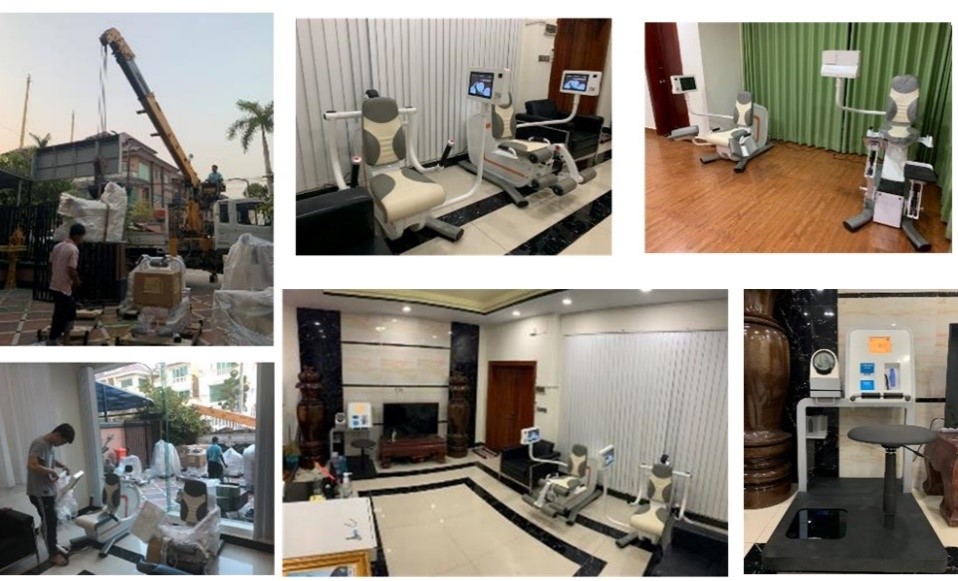
Figure 5: Taiwan-Cambodia Medicine, Humanities, Science and Technology Innovation Center in Academia Formosanica Co., Ltd., Phnom Penh
To build a demonstration base of Taiwan's telemedicine and smart health in Phnom Penh and to offer Taiwan's experience, the team brought together domestic companies specializing in research and development of telemedicine and smart health and set up the Taipei R&D Demonstration Center in Taipei (see Figure 6). Also, the team sought suitable sites to work with partners to create diverse technology application models and establish different demonstration bases for smart health. After the application models are running smoothly in Taiwan, we will apply for the Cambodian medical device license and share the Taiwan experience.
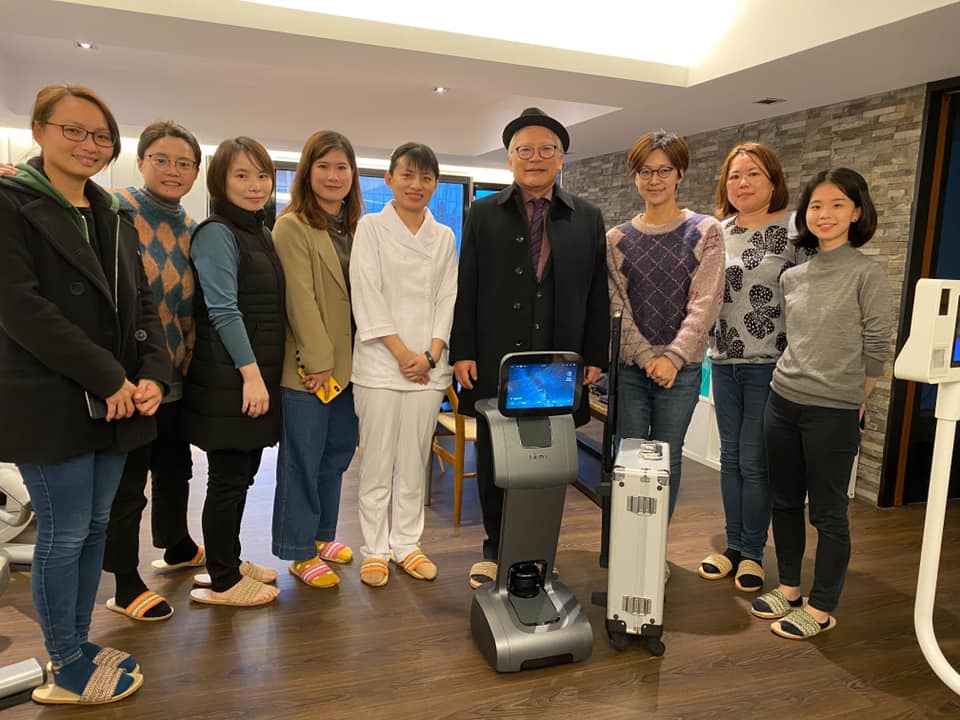
Figure 6: Taipei R&D Demonstration Center
Our team has established a personalized, home-based, community-based healthcare R&D center in Taipei with a product demonstration area. We combined home healthcare, telemedicine information platform, and cloud monitoring, converting homes into smart wards, including home rehabilitation and smart ICU solutions. The team has agreed to collaborate on smart rehabilitation, smart hemodialysis, and cardiovascular centers with hospitals and communities, echoing future medical trends and integrating community care to make the hospital a resource integration center. Moreover, through regular R&D meetings and joint operations, we create diverse technology application models and set up a base to support individual and family supply chains. Currently, the demonstration bases in Taiwan and the application fields include smart hospital planning and application in Pingtung Christian Hospital, long-term care demonstration area in Wutai, international emergency medical demonstration area, social welfare and long-term care demonstration base in Zhongcin neighborhood, alliance with clinics and community hospitals for future transformation and planning, and cooperation with the travel industry to create a campus that combines tourism, healthcare, and community application.
In addition, the Taiwan-Cambodia Medicine, Humanities, Science and Technology Innovation Center has introduced various smart devices, Healthcare Information System, and the telemedicine platform to establish a telemedicine service model in the overseas STIC in Phnom Penh. Familiar with the supply chain of Taiwan's medical industry, the center assists domestic manufacturers in applying for medical devices and pharmaceuticals licenses and plans to establish smart clinics that combine clinics, pharmacies, cosmetic stores, and channels for pharmaceuticals and medical devices. In terms of education, the center cooperates with Chenla University to develop training programs for nursing staff from acute care to long-term care. As the pandemic worsened in Cambodia, the Taipei R&D Demonstration Center sent medical supplies to Phnom Penh and guided local medical personnel on telemedicine systems, protection measures, and the tracking of COVID-19 vaccine inoculation (see Figure 7).
Assisted by Health Asia Co., the center has cooperated with the Taipei Economic and Cultural Office in Ho Chi Minh City and signed cooperation agreements with Chang Gung Hospital, Cathay General Hospital, Kaohsiung Veterans General Hospital, and Pingtung Christian Hospital to establish referral and cooperation mechanisms. To promote service quality, the medical team has developed procedures for treating patients with acute, critical, and complex diseases. With the help of smart technology, the team can play a more active role in supporting patients as well as their families and friends and forge a support network that is beneficial for their families. Since 2019, we have successfully arranged at least five patients with critical diseases to receive medical treatment in Taiwan with follow-up monitoring, creating an excellent reputation for our center (see Figure 8).
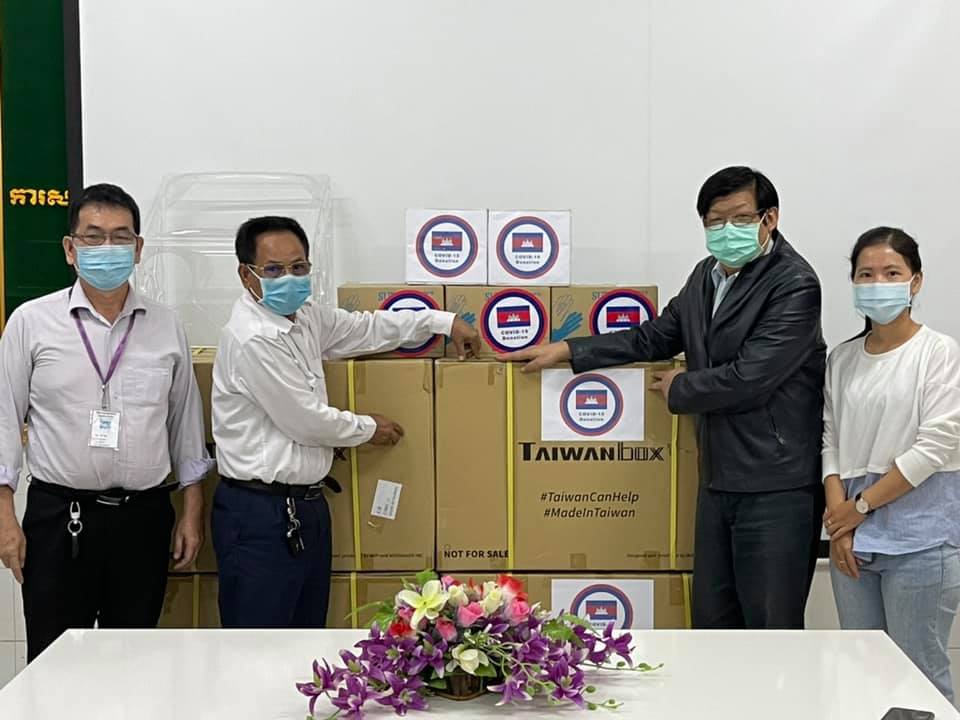
Figure 7: Medical donations for hospitals in Cambodia with the support of Pingtung Christian Hospital
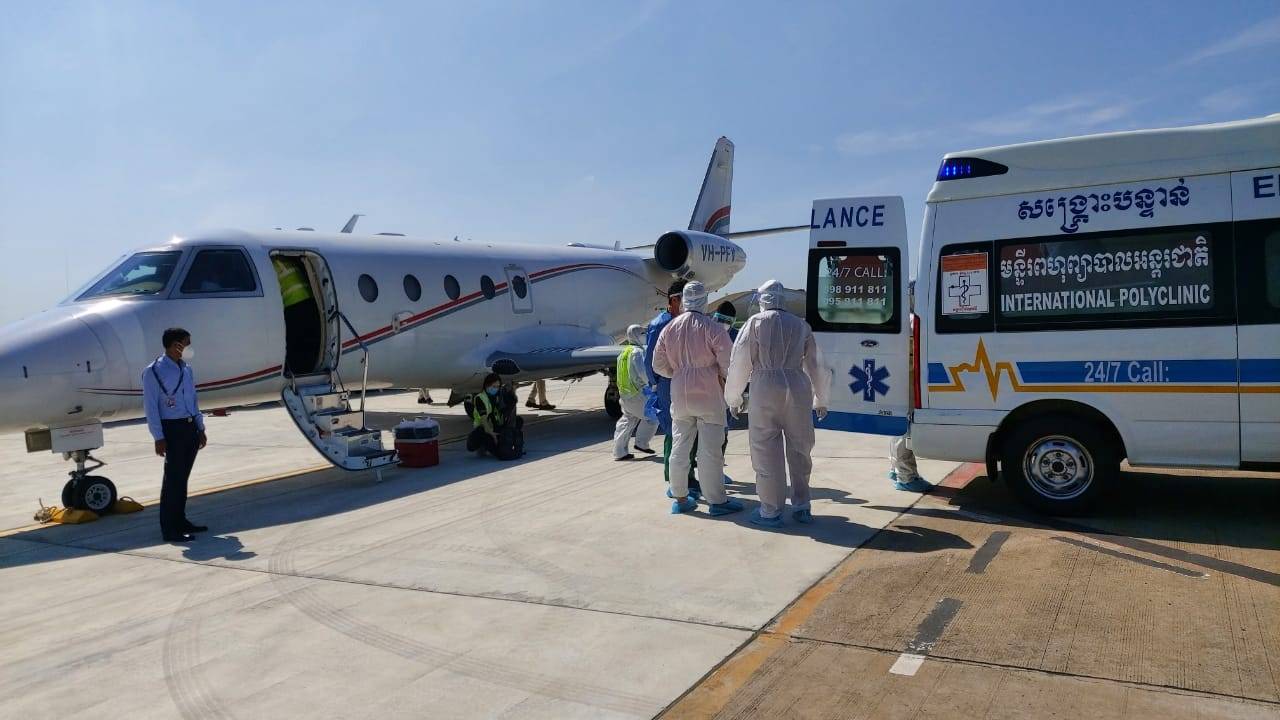
Figure 8: Assisting Cambodian patients with severe symptoms to receive medical treatment in Taiwan
Conclusion
Taiwan-Cambodia Medicine, Humanities, Science and Technology Innovation Center aims to bring together outstanding talents from medical and industrial sectors to establish alliances with cooperation. With Pingtung Christian Hospital as the core, we hope to promote the informatization of medical systems in Taiwan as well as other countries, ally with Cambodia and ASEAN countries, and find our place in Asia. With the support of Cambodia, we hope to share Taiwan's experience and assist the development of Cambodia's medical and health infrastructure, and provide total solutions for teaching, service, R&D as well as pharmaceuticals and medical devices. With our projects, we aim to build a future medical system in Cambodia, establish an overseas demonstration base for Taiwan's telemedicine and smart health, and become an international center that shares our experience with the world.